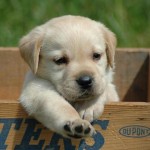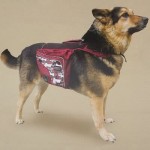Written by Senior Editor Peter Gehr
If you’re considering a pet, here are the best tips on how to pick a puppy for your family. Although you may be able to find a bargain from a litter across town, you should be aware that that sort of bargain can end up costing you money and emotional trauma. Having said that, I’m not suggesting that you don’t do that, but I am recommending caution to avoid inheriting a sick or unhealthy puppy.
By knowing some fundamentals in order to make an informed decision, you can avoid issues that you may not even be aware exist. In fact, the only criteria most people in mind are limited to the following: Is it cute?
However, try to be a little more objective when making this choice. Be pragmatic and sensible and be sure you have some testing rules in place to help you.
Best Tips on How to Pick a Puppy for Your Family
Here are some steps to include to help you choose your pet:
Choosing a healthy puppy is easy. Health is the foundation everything else builds off. If you ignore this simple, puppy health check you may end up paying for it later.
Before you start any puppy testing , you should follow some basic guidelines to find a healthy pup. Make sure you spend time evaluating each puppy.
Be objective. Don’t fall in love with a puppy because you feel sorry for it, or think it’s cute. Of course it’s cute, they’re all cute. You have plenty of time to coo once you have a healthy puppy romping around with you.
Sickly puppies and dogs are a burden both emotionally and monetarily. Before taking on a dog or puppy with known health problems, be sure you have the means in both time and money.
If you do end up with a sickly dog, or puppy you will need to have a veterinarian check them out thoroughly.
When you approach a litter of pups observe them for a while. Do you see any pups that don’t seem to fit in? Are there any with noticeable limps or discharge around their eyes? Are their coats clotted and matted? Do you see any bare spots? If yes, it is worth inspecting the whole litter very carefully. It’s not uncommon for a whole litter of puppies to become infected from one sickly pup.
After observing the puppies pick each one up and make some, simple inspections:
A healthy puppy has teeth that meet in the front of the mouth with the tops slightly overlapping. Pull back their lips and check. At the same time look for pink, wet gums, and bright white teeth.
A healthy puppy’s nose should be slightly damp. It shouldn’t drip or leak mucus. A puppy’s breathing should be clear without any raspiness. Puppies shouldn’t have stuffed noses.
Check the puppy’s ears. They should be clean and should not carry any offensive odors.
A healthy puppy’s feet and legs will point forward when the puppy is standing. Dogs shouldn’t be pigeon toed or bowlegged. Run your hand down each limb feeling for any obvious abnormalities.
Check the eyes. They should be clear without any mucus buildup around the lids. The hair around the eyes should be unmatted and dry.
Litter Condition
Check the overall condition of the litter area. The litter area should be free of dog poop and pee. The puppy’s fur should be clean. If you see poop on their fur it most likely means the pen was neglected. Healthy puppies won’t poop where they eat and sleep unless they have no other choice. Puppies that have been living in filth may have problems with rolling and poop eating when they become adult dogs. They will also be harder to house train.
The great majority of puppies are healthy puppies, but it’s worth a close inspection to make sure your new best friend is a healthy puppy. Click here to visit the original source of this post
Some of the best tips on how to pick a puppy for your family are actually pretty practical and methodical. Let yourself be guided with a reasonable approach to the decision process, and you’ll end up with an assurance that you’ve chosen well, and chosen “cute.”




